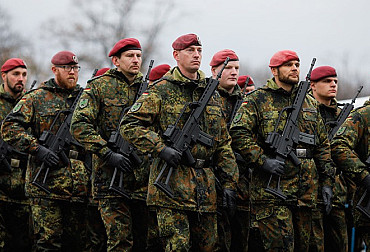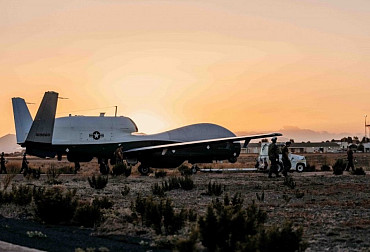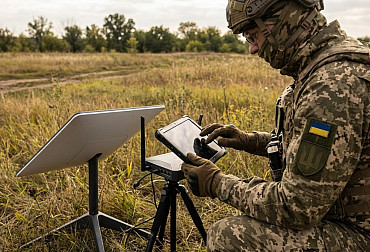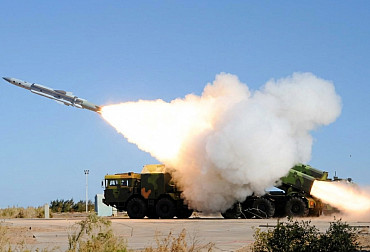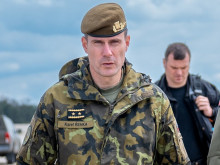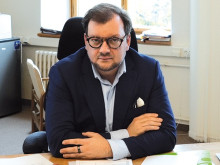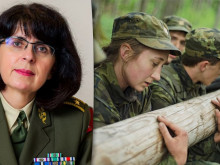Tomáš Pojar: The Czech Army must outsource some activities and open up to society
National Security Advisor Tomáš Pojar talks about the need for changes in the army that will lead to greater integration with society. According to Pojar, there are many people who have something to offer and want to cooperate with the army in some way, but they are discouraged by pointless bureaucracy and the rigidity of the system.
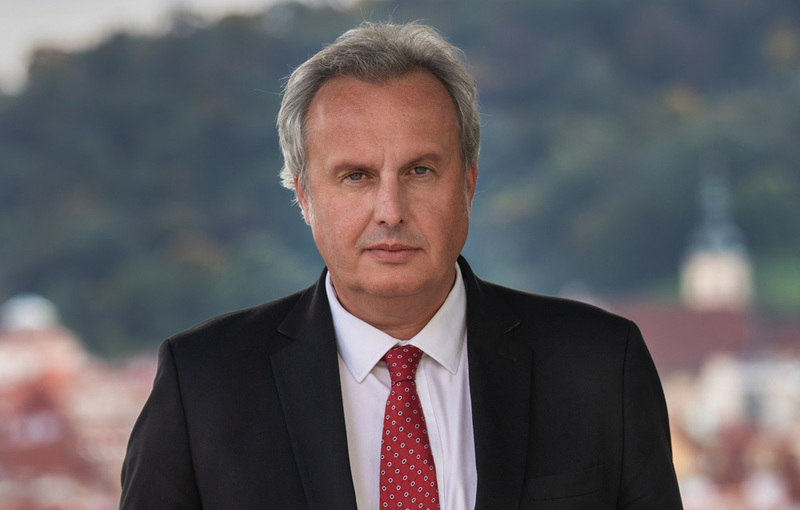
What will the Czech army look like in mid-2025? It seems that after the outbreak of war in Ukraine, the army focused mainly on technology and somewhat neglected personnel.
The modernization of the army is underway. The old Soviet equipment that filled our warehouses just a few years ago is practically gone, and new, modern Western equipment is coming in. There is no question that the army needs to recruit more people than it currently has. And it is clear that this will not happen without problems. The army operates in a labor market with minimal unemployment, just like other similar institutions and employers. The modern army and its modern systems often need soldiers with different qualifications than in the past. Simply put, more people with specific skills are needed, whether in IT or language skills. This transformation process has already begun, but it presents many challenges that need to be discussed and addressed with a long-term perspective.
A few months ago, the government decided to gradually increase defense spending to three percent by 2030. However, it was clear much earlier, at least after Russia's invasion of Ukraine in 2022, that defense spending would need to be increased more radically.
Of course, it was clear fifteen years ago. But at that time, it was only individuals who said that spending one percent of GDP on defense was unsustainable and that two percent was possible in times of peace. And there has been no peace in Europe since 2014. At the same time, the army already had huge internal debt at that time. Unfortunately, however, there was no demand for such a step from society as a whole at that time. Not only the Czechs, but the whole of Europe lived under the illusion of eternal peace, eternal prosperity, and eternal security, for which there was no need to spend money. Vladimir Putin changed that, partly in 2014 and then very significantly with his attack on Kyiv in 2022.
And then came, in your words, the “shocking announcement” from the new US President Trump...
Donald Trump's return to the White House has only reinforced this, because the United States is telling us much more clearly than in the past that Europe must rely more on itself and that America will not defend Europe if Europe does not take its defense seriously. I would just like to remind you that Barack Obama said something similar fifteen years ago. However, today there is significantly greater pressure from the US for Europe to become more independent in the area of defense, and there is public demand to increase defense spending. That is why political representatives, not only in the Czech Republic, can finally afford to take these steps. Things usually start to move when there is a sense of danger or threat in society. It is no coincidence that spending has risen much more in the Baltic states, Poland, and Finland, countries that border Russia and have experienced direct warfare with Russia in the past.
Chief of the General Staff, General Karel Řehka, recently spoke about how the shortage of soldiers is becoming a strategic problem. A recently approved amendment to the law on professional soldiers is intended to help solve this problem. How do you assess it? Will the Czech army be able to achieve its target of 30,000 professional soldiers and 10,000 active reservists by 2030?
It is certainly a step in the right direction. Only time will tell whether it is sufficient. Of course, it is partly about money, but it is about the entire ecosystem of defense and state security, which must not be destabilized and skewed in one direction. It is also important to spend money in a more targeted manner and for the army to be more open to society. It is necessary to develop cooperation with companies, universities, science, and research. Similarly, businesses and universities must become more open to the army, and there must be greater permeability and mutual cooperation. The army must also open up to certain professions through parametric changes in its own recruitment and requirements. The same applies to the active reserves.
I am deeply convinced that the Czech Republic has many IT specialists who would like to help the army and do not need to be able to run 100 meters within the required time limit to do so. I believe that in the future, many of the army's activities will be outsourced and will not have to be performed by soldiers in uniform. My common sense tells me that we cannot do without some form of outsourcing. The army will still need soldiers who can run, shoot, and parachute, but at the same time, it needs many trained drone operators. Drone operators can do this for fun and can only be called upon when needed. The war in Ukraine and the conflict in the Middle East show that this is a new and essential skill on the battlefield.
Something like a modern version of the Svazarm?
I believe that Czech society is not ready for the reintroduction of compulsory military service. Even if it were introduced, it would not bring any benefits. However, there is enormous scope for the army to open up and cooperate with various existing associations on a voluntary basis in order to attract new people. I am convinced that many people would be willing to do much more on a voluntary basis than they do now.
So why isn't this happening?
There are positive examples that can be built upon. There are certainly many positive examples of people in active reserve forces. Last year's pilot project on voluntary military training for high school students was very successful and attracted considerable interest. But we still find many negative examples in which people join the army or active reserves and then discover how much harassment and how many meaningless rules they have to deal with. I am referring to rules that discourage individuals from doing anything. When I read the debate about problems in the army, it is not just that soldiers are poorly paid, but the reason why many leave is also that they have to do a lot of pointless, bureaucratic tasks as part of their service and then do not have enough time to do what they are in the army to do. Just as Czech society and its economy need to undergo a process of debureaucratization and deregulation, the same should happen to some extent in the army. If this does not happen, it will become increasingly difficult to retain current personnel and recruit new ones.
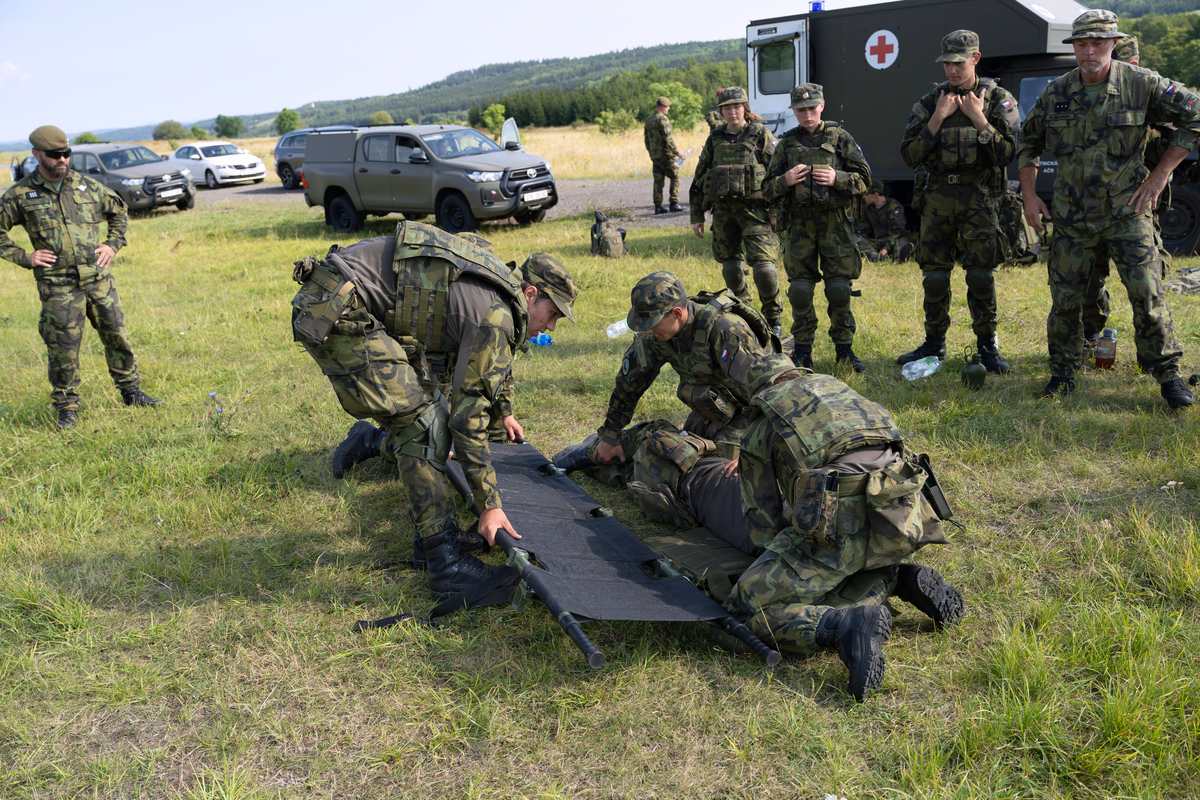
Given the polarization of society and the overall risky security environment, isn't greater openness and permeability of the military towards society a risk?
Everything has some security risk. Of course, the need-to-know rule must always be respected according to one's role. I am deeply convinced that opening up the military is a necessity that will bring far more opportunities than problems. If we do not change anything, the security risk will not increase, but we will not gain the capabilities we need. I fear that the situation with military recruitment will continue to deteriorate and our military will become smaller and smaller. And that is not in our interest.
That sounds rather pessimistic.
If we don't change our thinking and adapt, we're going to hit a brick wall. Soldiers need to be well paid, but this debate cannot be reduced to money alone. These people want to serve their country and must be paid decently, but money is not the primary reason they join the army. It's really about wanting to serve their country. But if the army discourages them and they feel that it doesn't make sense, they will give up, and no amount of money will change that. And we need people to serve in the army primarily because they feel that they are serving their country, not because of the money. Because in a crisis, it is patriots who will defend the country, not mercenaries.
Defense Minister Jana Černochová cited fear of deployment to Ukraine as one of the factors why soldiers are leaving the army. Isn't it ultimately a good thing that such people are leaving the army?
I haven't had the opportunity to see any data confirming this. But I know a lot of people in my circle who have joined the army or are considering doing so precisely because of the war in Ukraine.
Let's return to the debate on soldiers' salaries. A few weeks ago, Defense Minister Jana Černochová surprised even her coalition partners with her statement that she wanted to raise soldiers' salaries by at least eight thousand, which drew criticism from representatives of other security forces. Isn't this an unsystematic move?
Security forces need to be viewed as a whole. The Ministry of Defense now has the advantage of having financial resources at its disposal and does not need to ask for additional money from the budget. But we cannot afford to destabilize the security system by paying soldiers less than police officers, for example. In my opinion, it is more necessary to diversify within individual forces. The army and the police, for example, are to some extent competitors in the labor market. And we have to think not only about external security, but also internal security. We need to think along these lines when it comes to firefighters, prison guards, customs officers, and so on. It's not that recruiting firefighters is exactly the same as recruiting police officers or soldiers, but you can't separate one from the other; you have to deal with it as a whole, knowing that all these institutions deal with similar problems, but have their own specific characteristics.
However, I also believe that there should be greater interconnection between these components, for example with regard to technology. This would be more economical and would contribute to better mutual interoperability. If the worst came to the worst and we found ourselves at war, it would be necessary to have interoperable technology within the individual components. The greater the interconnection, the easier it would be to respond in a crisis.
Some time ago, you joined the Active Reserve of the Armed Forces of the Czech Republic. What led you to do so?
I joined the Active Reserve because I want to serve this country. And also because I want to set an example in my role as National Security Advisor. But I also wanted to find out what works and what demotivates its members.
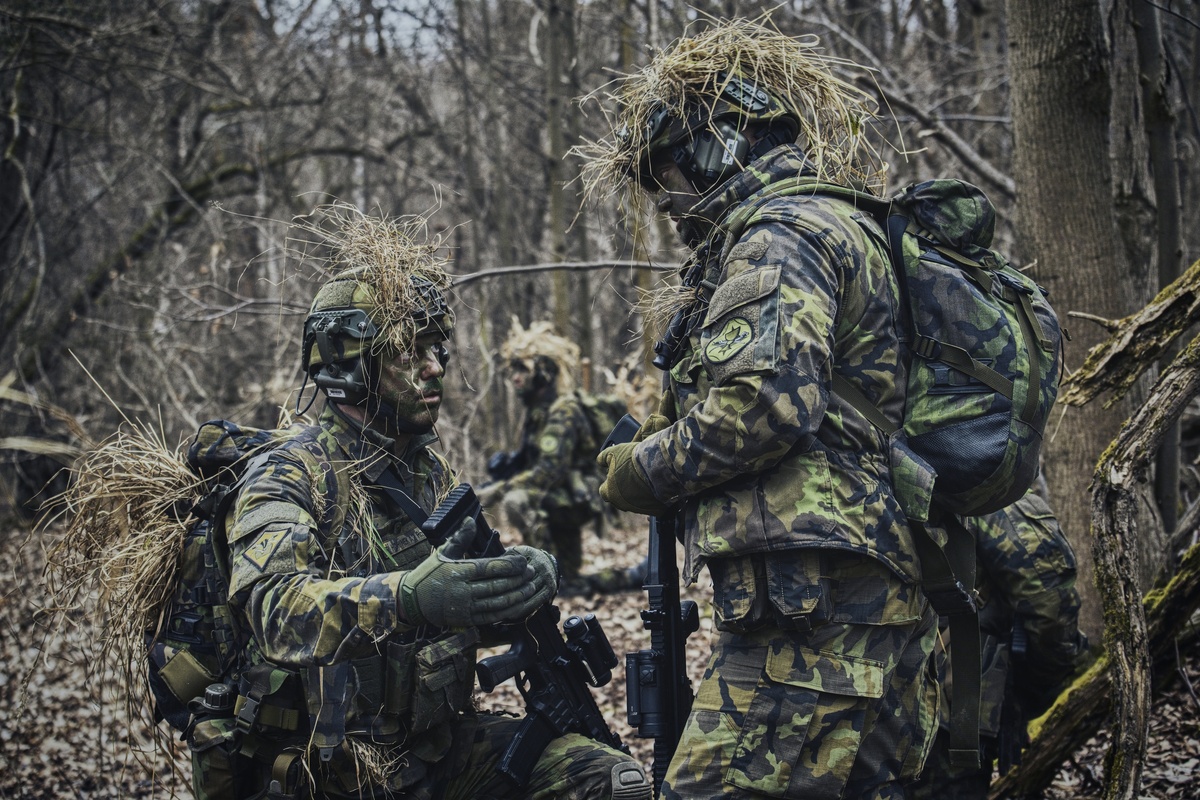
So what is your assessment of the active reserves now?
I have seen many positive things and learned a lot. But I have also encountered many nonsensical regulations that would be good to dismantle and eliminate. We must support our army in removing bureaucracy so that it can function more flexibly. When I saw how much pointless paperwork has to be filled out in the active reserves, I understand that it is demotivating for many. We must deregulate, simplify, and reduce bureaucracy in all spheres of society, including the security forces. If we do not do this, we will not be competitive in any way. If I had to sum up my impression of how the active reserves work, I would say that the system works and makes sense. But it needs to be opened up more to society and made more flexible.











